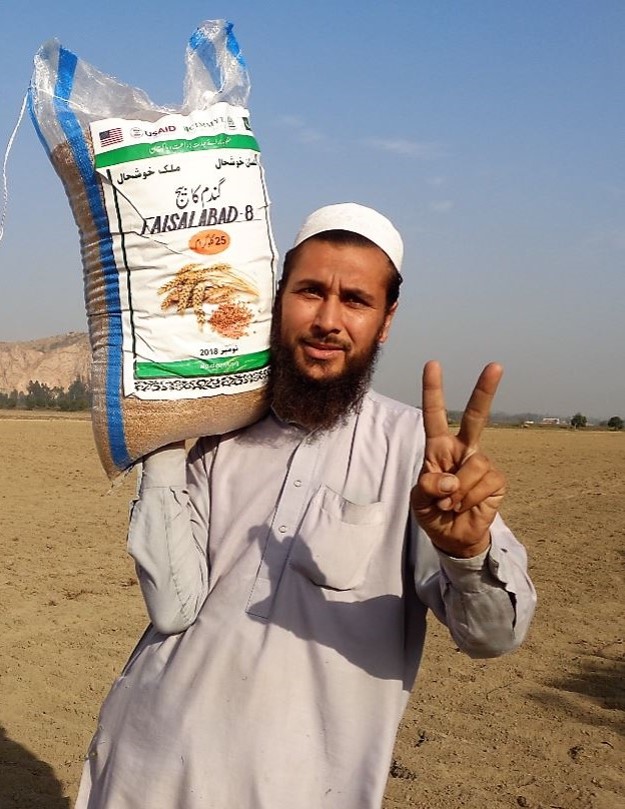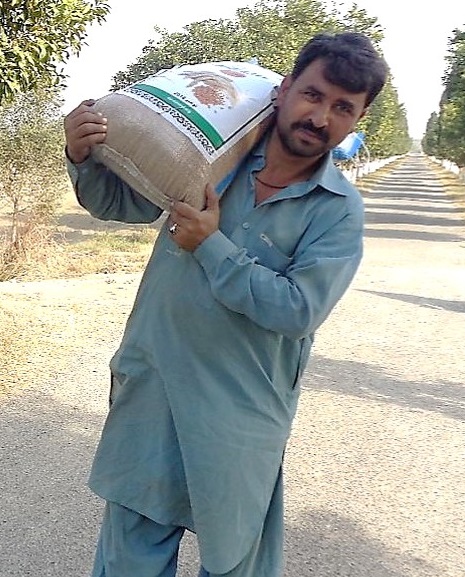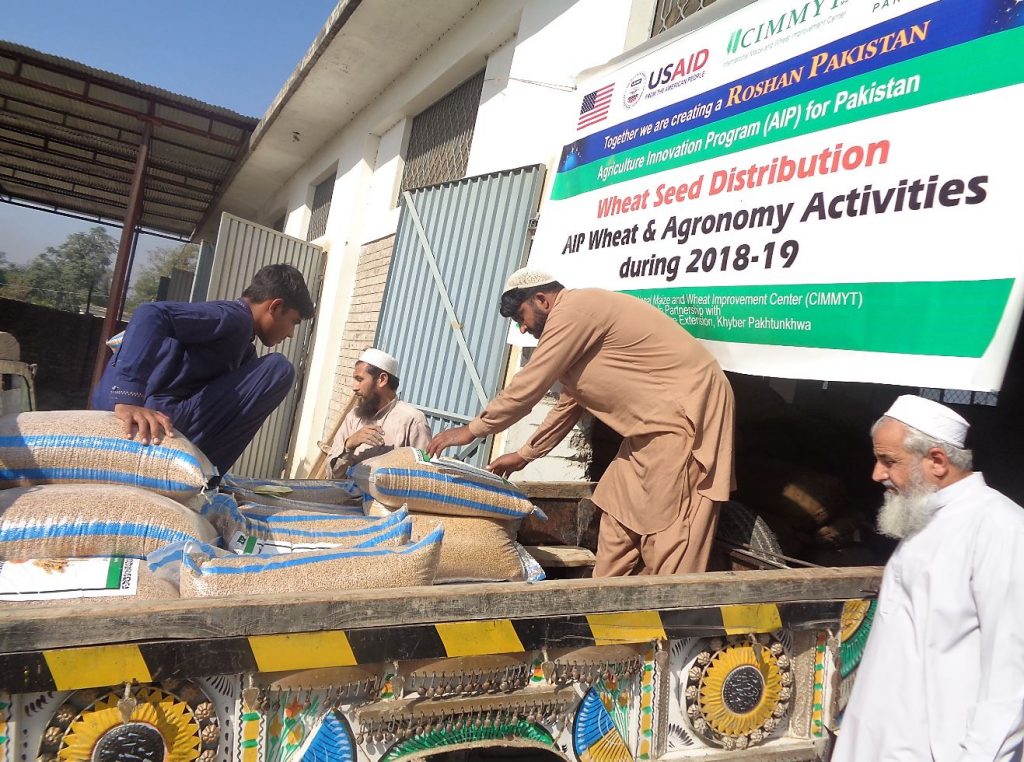
Nearly 3,000 smallholder wheat farmers throughout Pakistan will begin to sow seed of newer, high-yielding, disease-resistant wheat varieties and spread the seed among their peers in 2019, through a dynamic initiative that is revitalizing the contribution of science-based innovation for national agriculture.
Some 73 tons of seed of 15 improved wheat varieties recently went out to farmers in the provinces of Baluchistan, Gilgit Baltistan, Khyber Pakhtunkhwa, Punjab and Sindh, as part of the Agricultural Innovation Program (AIP), an initiative led by the International Maize and Wheat Improvement Center (CIMMYT) with funding from the US Agency for International Development (USAID).
“Our main goal is to help farmers replace outdated, disease-susceptible wheat varieties,” said Muhammad Imtiaz, CIMMYT scientist and country representative for Pakistan who leads the AIP. “Studies have shown that some Pakistan farmers grow the same variety for as long as 10 years, meaning they lose out on the superior qualities of newer varieties and their crops may fall victim to virulent, rapidly evolving wheat diseases.”
With support from CIMMYT and partners, participating farmers will not only enjoy as much as 20 percent higher harvests, but have agreed to produce and share surplus seed with neighbors, thus multiplying the new varieties’ reach and benefits, according to Imtiaz.
He said the new seed is part of AIP’s holistic focus on better cropping systems, including training farmers in improved management practices for wheat.
Wheat is Pakistan’s number-one food crop. Farmers there produce over 25 million tons of wheat each year — nearly as much as the entire annual wheat output of Africa or South America.
Annual per capita wheat consumption in Pakistan averages over 120 kilograms, among the highest in the world and providing over 60 percent of Pakistanis’ daily caloric intake.
The seed distributed includes varieties that offer enhanced levels of grain zinc content. The varieties were developed by CIMMYT in partnership with HarvestPlus, a CGIAR research program to study and deliver biofortified foods.
According to a 2011 nutrition survey, 39 percent of children in Pakistan and 48 percent of pregnant women suffer from zinc deficiency, leading to child stunting rates of more than 40 percent and high infant mortality.

“I am very excited to be part of Zincol-16 seed distribution, because its rich ingredients of nutrition will have a good impact on the health of my family,” said Munsif Ullah, a farmer from Swabi District, Khyber Pakhtunkhwa province.
Other seed distributed includes that of the Pakistan-13 variety for rainfed areas of Punjab, Shahkar-13 for the mountainous Gilgit-Baltistan, Ehsan-16 for rainfed areas in general, and the Umeed-14 and Zardana varieties for Baluchistan.
All varieties feature improved resistance to wheat rust diseases caused by fungi whose strains are mutating and spreading quickly in South Asia.
CIMMYT and partners are training farmers in quality seed production and setting up demonstration plots in farmers’ fields to create awareness about new varieties and production technologies, as well as collecting data to monitor the varieties’ performance.
They are also promoting resource-conserving practices such as balanced applications of fertilizer based on infrared sensor readings, ridge planting, and zero tillage. These innovations can save water, fertilizer, and land preparation costs, not to mention increasing yields.
“CIMMYT’s main focus in Pakistan is work with national wheat researchers to develop and spread better wheat production systems,” Imtiaz explained. “This includes improved farming practices and wheat lines that offer higher yields, disease resistance, and resilience under higher temperatures and dry conditions, as well as good end-use quality.”
CIMMYT’s partners in AIP include the National Rural Support Program (NRSP), the Lok Sanjh Foundation, the Village Friends Organization (VFO), the Aga Khan Rural Support Program (AKRSP), the National Agricultural Research Council (NARC) Wheat Program, the Wheat Research Institute (WRI) Faisalabad and Sakrand centers, AZRI-Umarkot, Kashmala Agro Seed Company, ARI-Quetta, BARDC-Quetta, and Model Farm Services Center, KP.

 Capacity development
Capacity development 
